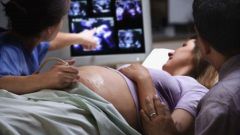You will need
- - container for biological material;
- - hygienic means.
Instruction
1
During the pregnancy the woman must pass the following tests: General blood test results (KLA) three times; urinalysis (OAM) – before each appearance to the gynecologist; biochemical analysis of blood – one time further if necessary; coagulation – twice; testing for syphilis three times,: HIV, hepatitis b and C twice; the blood test for sexually transmitted diseases (STDs) – once; a blood test for cytomegalovirus infection, toxoplasmosis, rubella, a virus of simple herpes (TORCH-infections) – one time; determination of blood group and Rh factor – a blood test for HCG and PAPP-a – in a certain period of pregnancy; determination of the level of alpha-fetoprotein (AFP), HCG, free estriol, once 18 weeks of pregnancy. If necessary, you can assign an additional research. So with a positive RH factor negative pregnant and the future father need to monitor the level of maternal antibodies to the fetus, which regularly rent the analysis interessny antibodies.
2
In General clinical blood analysis is taken from the finger. The capture is in the morning on an empty stomach in a specialized laboratory. Preferably 8 hours before the blood donation to refrain from eating and limit the intake of fluids, to exclude alcoholic beverages. Urine General clinical analysis of going at home. In the morning you need to wash away the genitals with the use of hygiene products, drain them thoroughly. Purchased in the pharmacy sterile container for biological material, collect the middle portion of the freshly isolated urine. You should label the container, putting her initials and the date. Be delivered to the laboratory. The day before delivery of the analysis it is recommended to avoid large fluid intake; should be excluded from the diet of vegetables, beets, tomatoes.
3
Blood for biochemical analysis coagulogram, blood group and RH factor, syphilis, HIV, hepatitis C and b, sexually transmitted diseases, TORCH infections, HCG, PAPP-a, AFP, free estriol is taken from a vein in the treatment room and then delivered to the laboratory for research. The day before the intended date of blood donation should follow a diet that excludes the consumption of fatty foods, fried foods, alcoholic beverages. On the day of delivery of the analysis it is necessary to drink juices, coffee, tea and other liquids. You can drink a glass of plain water. To reduce physical stress, eliminate emotional distress. Immediately before blood donation, you must sit and relax.
4
You need to inform the gynecologist about taken at the time of testing drugs. If on the day of testing was the need for food, should refuse blood collection and transfer the tests to another day.


